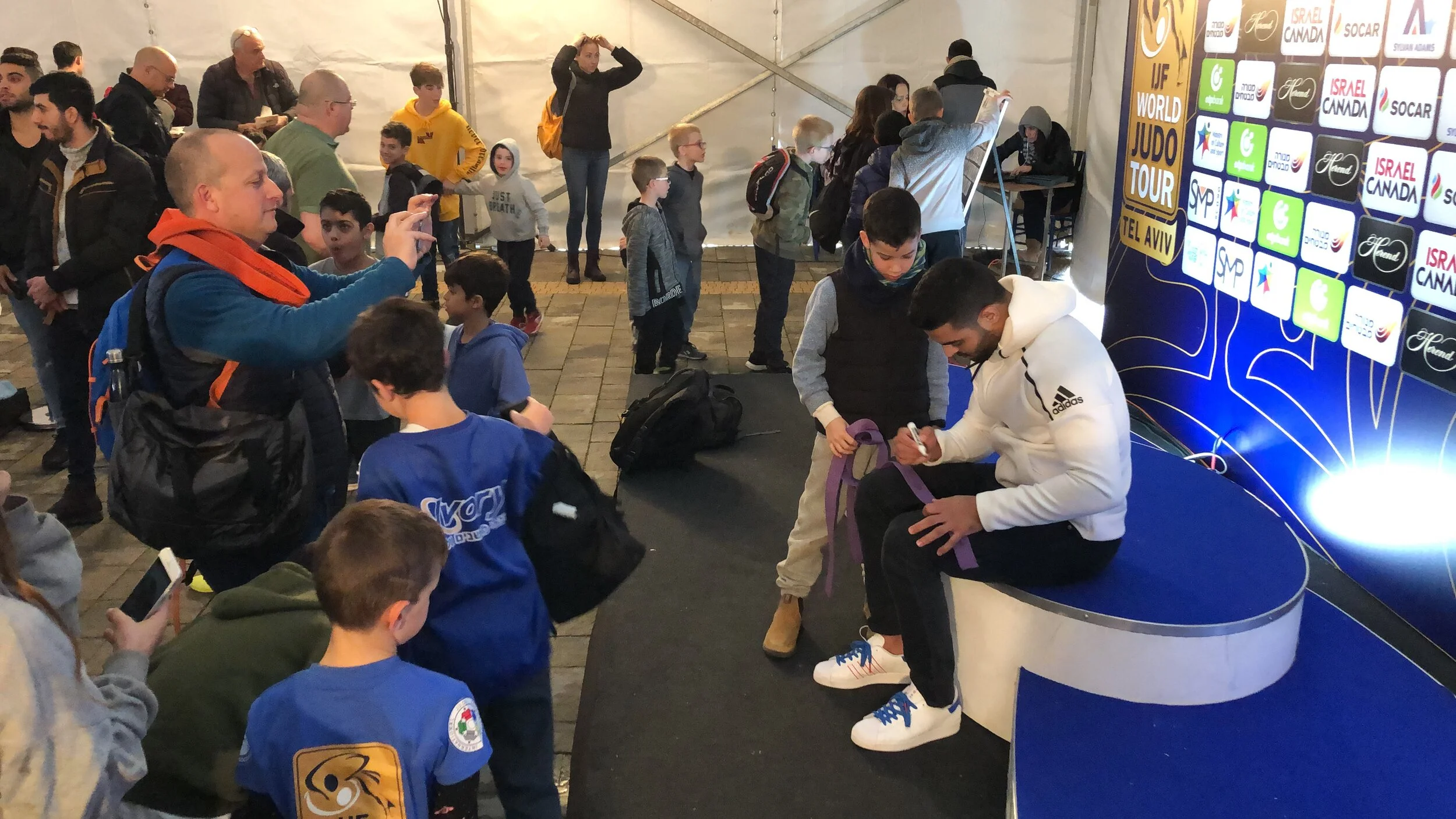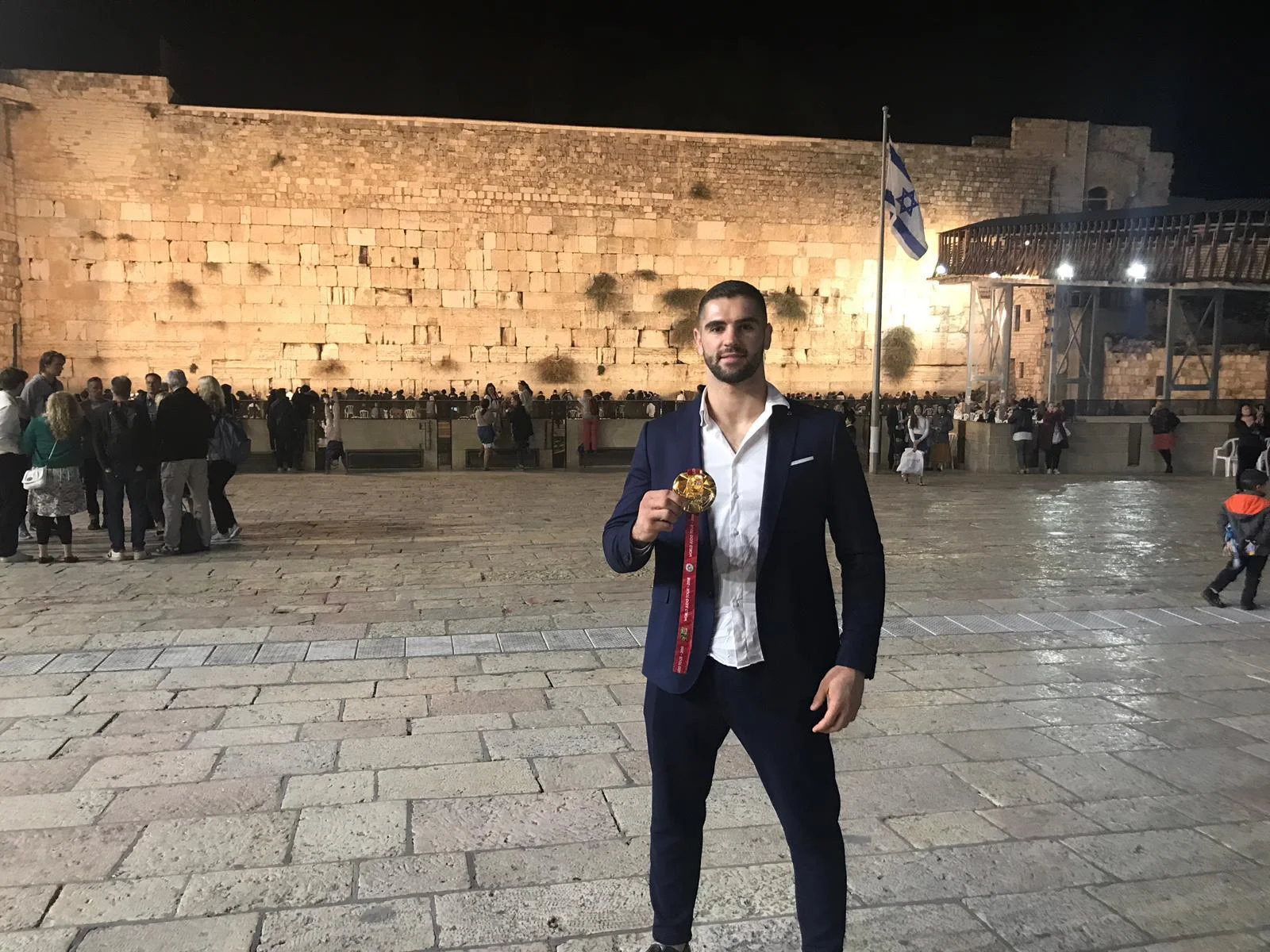PARIS – Thirty-two years ago, at the 1992 Games in Barcelona, a young Israeli, Yael Arad, won her nation’s first-ever medal in judo, a silver in the women’s under 61-kilo class. The very next day, in the men’s under-71 category, another young Israeli, Oren Smadja won a bronze.
The story of Israel at the Olympic Games, its hopes and dreams, particularly in the aftermath of 1972, is and forever will be intertwined with Yael Arad, who is far better known, because history summoned her first, but also Oren Smadja.
On Thursday, amid so much in our world that makes being Israeli at the Olympics extraordinary, with all that word conveys, destiny called again, a mixture of elation and unspeakable heartache as a new generation of Israeli judo players for the first time in that nation’s history won two medals on the same day – Arad now both president of the Israeli Olympic Committee and a member of the International Olympic Committee, Smadja the men’s national team coach.










